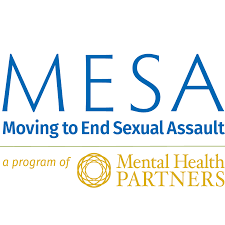Moving to End Sexual Assault will always support survivors of sexual violence in Boulder County, but Director Janine D’Anniballe envisions a world where their services are no longer needed.
The organization, known as MESA, has spent the last 50 years as the only sexual violence resource center in the county and is celebrating the half century of service to the Boulder County community next week.
“It is a big milestone,” said D’Anniballe, who has served as director for over 20 years. “A lot of similar agencies don’t make it this long.”
MESA was established in 1972 as Humans Against Rape and Molestation after two girls in Boulder were abducted, sexually assaulted and left for dead. One girl survived, and the community formed only the third rape crisis center to exist in the country.
“That is what formed the basis of what is now MESA,” D’Anniballe said. “That was this group of volunteers rallying to say we want to support people that this happens to and work so that this never happens again.”
The nonprofit was also known as the Boulder County Rape Crisis Team before adopting its current name, MESA.
MESA supports suvivors of sexual assault, offering a 24 hour hotline, victim advocacy, individual therapy and more. In recent years, MESA has introduced a text line and other ways to help survivors beyond therapy, like trauma-informed yoga and support groups.
“I feel like launching those initiatives have been huge to just help people heal and find community in a different way,” D’Anniballe said.
Prevention education is also a large focus for the nonprofit, working with schools, community groups and other professional entities to talk about why sexual violences happen and how to work to prevent it from happening in the first place, D’Anniballe explained.
“We really evolved to more of what we call the primary prevention approach, so we can hopefully not be in business in 50 more years,” she said.
From January 2021 to July 2022, MESA has served 2,880 people through their hotline and text line, provided on-going advocacy and case management for 296 clients and presented prevention education for 7,000 participants in schools and the community.
Having been with MESA for nearly half its existence, D’Anniballe said it is the ability to work with like-minded people to address this major social justice issue that brings her back every day. She also believes it is possible to end sexual violence.
“We’re going to always help survivors, we’re going to always be there and help people on our hotline, but I think the future is literally going neighborhood by neighborhood, school by school, business by business to educate about how to eradicate rape culture,” she said. “Because that’s the thing, we can actually do this.”
D’Anniballe’s vision is to get people to join MESA in this mission, to want to be the business or the school that no longer has the problem of sexual violence. She explained that MESA can help show people how to be that home, neighborhood or business.
“I think in today’s world there feels like a lot of things that we can feel distressed about and feel like we don’t know what to do to help it, right?” D’Anniballe said. “We feel just powerless and helpless. But with sexual violence, there are things that you and I can do today to really kind of cut off sexual violence’s oxygen supply. We can impact that today.”
Until that happens, D’Anniballe said MESA will be here to support those survivors and fight against rape culture.
“MESA’s the kind of organization that people probably don’t pay a lot of attention to until we’re needed,” she said. “I think what 50 years means is that we’ve been able to be there for a lot of people who did need us and we’ll be there in the future if the county ever does need us. We’re here.”
MESA’s 24-hour hotline can be reached at 303-443-7300 or by texting BRAVE to 20121. Advocates offer emotional support, accompaniment to the hospital or police department and information about legal resources, medical care, counseling services and other community resources.



